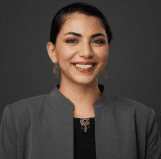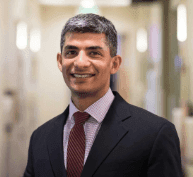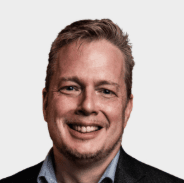Global Oncology Programs
Reducing Cancer Disparities Worldwide Through Sustainable Infrastructure, Education, and Access to Care
I. What is Global Oncology?
Global oncology, a branch of global healthcare, is focused on reducing the burden of cancer worldwide, especially in low- and middle-income countries (LMICs) where access to cancer prevention, diagnosis, and treatment is limited.
The World Health Organization (WHO) identifies global health disparities as a critical challenge that shortens lives and reduces healthy life expectancy. Rooted in social determinants such as poverty, lack of education, and geographic location, these inequities demand a skilled workforce of professionals equipped to address multifaceted health challenges on a global scale.
Global Oncology involves addressing disparities in cancer care by:
- Improving access to early detection and quality treatment
- Training local healthcare providers
- Supporting cancer research in diverse populations
- Building sustainable cancer care systems in underserved areas
Our mission is rooted in equity, compassion, and collaboration. At its core, global oncology is about ensuring that where you live does not determine whether you live when faced with cancer.
II. The Core Pillars of Binaytara’s Global Oncology Programs
Binaytara advances global healthcare by building sustainable, life-saving cancer care systems and delivering education and outreach programs in underserved regions around the world. Our work represents a practice that places a priority on strengthening the health system to address pressing health challenges identified by the World Health Organization and improve global health security.
We focus on:
-
Infrastructure Development
- We establish cancer centers and expand oncology services in low-resource settings, such as Nepal, where access to care is limited or non-existent. These efforts contribute to achieving equity in health for all people by ensuring that essential cancer services are accessible regardless of geography or income.
-
Training & Education
- We equip local healthcare providers with up-to-date knowledge and skills through medical education programs, fellowships, and clinical training, ensuring long-term impact. We also encourage study, research, and practice that support innovation in cancer prevention, diagnosis, and treatment.
-
Access to Care
- We deliver services like early cancer screenings, pathology, surgery, chemotherapy, and palliative care to patients who would otherwise go without treatment.
-
Strategic Partnerships
- We work with governments, local hospitals, and international experts to create scalable, context-specific solutions for cancer care and delivery. Through these collaborations, we also promote cancer research that informs effective policies and strengthens local capacity.
Through these efforts, Binaytara is transforming the landscape of cancer care in underserved communities, bringing hope, healing, and health equity to those who need it most.
III. Binaytara’s Current Global Oncology Programs
1. Binaytara Health Clinic
Binaytara opened the Binaytara Health Clinic on December 17, 2018, in Janakpur, Nepal. The 25-bed health clinic in Madhesh Province, Southern Nepal, caters to over 1700 local cancer patients. It is the only health clinic that provides cancer services in the region. Binaytara’s hospital staff meet weekly with oncology experts in the US in weekly tumor board sessions. The US tumor board members volunteer their time to review patient cases, recommend treatment, and learn from each other.
2. Binaytara's Global Oncology Mission in Nigeria (Project Naija)
Binaytara expanded its global oncology programs through a strategic partnership with Nigerian healthcare institutions to strengthen cancer care delivery at Federal Medical Center Ebute-Metta and improve access for patients across Lagos. This initiative represents a transformative step in our mission to expand high-quality cancer care worldwide, closely aligning with our 2024–2029 Strategic Plan for global oncology advancement.
3. Center for Women's Cancer Access and Advocacy
Binaytara developed the Center for Women's Cancer Access and Advocacy to reduce cancer disparities among women in areas with underresourced health systems. This program combines screening services, treatment options, advocacy efforts, and collaboration with medical experts to enhance women's health outcomes.
4. Health Camps and Cervical Cancer Screenings
Binaytara holds free health camps in Janakpur, Nepal, providing general health checkups as well as screenings for breast, cervical, and oral cancers. Binaytara’s first cervical cancer screening program was conducted starting in May 2014, where more than 1,000 women were screened for cervical cancer. In 2025, Binaytara is holding four more health camps to expand its community impact and improve global health security.
“Cancer doesn’t respect geographic, religious, or ethnic boundaries—it can impact anyone, anywhere. For those of us fortunate enough to have access to care, it is critical to focus on expanding that access in under-resourced communities. Not only does this save lives, it helps us better understand the barriers to care, knowledge that can improve cancer care everywhere.”- Dr. Binay Shah, President and co-founder of Binaytara
5. Binaytara Global Health and Health Disparities Internship Program
Binaytara’s Global Health and Health Disparities Internship Program is an initiative designed to equip aspiring professionals committed to achieving equity in health for all people. This transformative program combines education and research to address the most pressing health challenges facing communities worldwide. By actively recruiting talented interns from all backgrounds, the program ensures that future leaders reflect the diverse populations they aim to serve.
Additionally, interns are equipped with the knowledge, skills, and practical experience necessary to tackle health disparities on a global scale. Through structured mentorship, hands-on research, and exposure to health systems in both developed and resource-limited settings, interns gain insights into the complexities of health inequities. Interns will engage in activities ranging from health disparities research and Continuing Medical Education (CME) program development in Bellevue, Washington, to hands-on global health projects at the Binaytara Health Clinic in Janakpur, Nepal.
6. Oncology Nurse Training
Volunteer nurses in the US provide monthly oncology nurse training sessions with the Binaytara Health Clinic staff in Nepal. This ongoing program trains nursing staff in oncology care, led by Judy Delismon.
IV. Convening and Empowering Leaders in Global Oncology Education
Binaytara Global Oncology Summit
Every year, Binaytara hosts the Binaytara Global Oncology Summit, a one-day CME-accredited conference dedicated to addressing cancer care in low and middle-income countries (LMICs). This summit will bring together leading oncology experts, healthcare professionals, and researchers interested in global oncology and healthcare to discuss innovative solutions and strategies to improve cancer care in resource-limited settings.
The Binaytara Global Oncology Summit aims to enhance the knowledge and skills of healthcare providers by offering comprehensive insights into the unique health challenges and opportunities associated with cancer care in LMICs. The conference will cover a wide range of topics, including the latest advancements in cancer diagnosis and treatment, effective resource utilization, and the implementation of cost-effective care models.
Participants will benefit from in-depth discussions on integrating cutting-edge technologies, such as telemedicine and mobile health, to extend cancer care services in underserved areas. Additionally, the summit will showcase successful cancer research case studies and best practices in community-based cancer prevention, early detection, and palliative care.
Key themes of the conference will include the role of international collaboration, capacity building, and policy advocacy in strengthening oncology care systems in LMICs. Attendees will have the opportunity to engage in expert-led sessions, panel discussions, and interactive workshops designed to foster a collaborative and multidisciplinary approach to cancer care.
Testimonials from Global Oncology Summit 2024 Attendees:

Maryam (“Mary”) Yousefiasl, MD, MPH | Fred Hutchinson Cancer Center | UW Medicine
Question: What talk did you find impactful or particularly interesting? Quote: “I found that Uganda talk educational, and I think this is a practice-changing trial that can help people get care more feasibly and more easily across the world.”Quote: “I found that Uganda talk educational, and I think this is a practice-changing trial that can help people get care more feasibly and more easily across the world.”

Shailender Bhatia, MD | Fred Hutchinson Cancer Center | UW Medicine
Question: What was your experience at the conference? Quote: “Well, this is my first Global Oncology Conference with Binaytara, and it was an amazing experience for me. I am leaving the conference, rejuvenated and energized by the inspirational work that so many people at the conference are doing to make healthcare more equitable and reduce some of the disparities at a global level.”Quote: “Well, this is my first Global Oncology Conference with Binaytara, and it was an amazing experience for me. I am leaving the conference, rejuvenated and energized by the inspirational work that so many people at the conference are doing to make healthcare more equitable and reduce some of the disparities at a global level.”

Geoff Cook, Vice President, Communications and Development | The Max Foundation
Question: What was your experience at the meeting? Quote: “This was an excellent meeting with a committed group of humanitarians with deep knowledge of the challenges that patients face, especially low-income households. Everyone here is trying to change the world and come up with solutions together.”Quote: “This was an excellent meeting with a committed group of humanitarians with deep knowledge of the challenges that patients face, especially low-income households. Everyone here is trying to change the world and come up with solutions together.”
Global Oncology at the Summit on Cancer Health Disparities
At our annual flagship event, the Summit on Cancer Health Disparities (SCHD25), we feature dedicated sessions on global oncology that highlight problem-driven, practical solutions for improving cancer care in resource-limited settings around the world.
These sessions showcase our ongoing efforts in places like Nepal, including innovations in diagnostics and treatment, implementation science in cancer prevention, and global clinical trials. Attendees gain insights into real-world strategies for addressing disparities in cancer care and learn from experts actively engaged in the field.
Below is an overview of select sessions led by renowned faculty from leading cancer institutions across the United States.
1. Session on Innovative Solutions to Cancer Care Accessibility: Session Chair: Shailender Bhatia, MD:
- Session Overview and Introductions - Shailender Bhatia, MD
- Innovations in Molecular Diagnostics - Vivian Oehler, MD
- Considering Global Standardization in Radiotherapy - Benjamin Li, MD, MBA
- AFFORD-IO - A Phase 2 Trial of Low-Dose, Reduced-Frequency Nivolumab in Uganda - Shailender Bhatia, MD
- Panel Discussion
2. Session on Global Oncology: Session Chair: Prakash C. Neupane, MBBS
- Sustainable Care Models in Low and Middle-Income Countries - Corey Casper, MD, MPH
- Binaytara's Efforts in Improving Cancer Care Disparities - Siddhartha Yadav, MBBS, MD
- Panel Discussion - Steven Kussick, MD, PhD; Dan Milner, MD, MSc, MBA
3. Session on Introduction to Implementation Science: Bridging the Gap Between Research and Practice: Session Chairs: Siddhartha Yadav, MBBS, MD & Catherine Duggan, PhD
- Implementation Science in Cancer Prevention and Early Detection in Global Oncology Settings - Lifang Hou, MD, PhD
- Panel Discussion - Salene M. W. Jones, PhD; Katrina Ortblad, ScD, MPH
Binaytara is committed to advancing the field of global oncology through education, advocacy, community outreach, and building sustainable healthcare facilities in underserved communities. We are championing equitable access to care and improving patient outcomes through all our programs. Our mission to reduce cancer health disparities continues to drive everything we do, from empowering healthcare professionals to improving patient care and transforming lives across the globe.
V. Upcoming Global Oncology Initiatives
Binaytara Research Institute
Binaytara is in the early stages of establishing the Binaytara Research Institute in Washington State. This initiative is focused on improving cancer care globally through implementation science. The institute will serve as a center for developing innovative solutions to current barriers in cancer care delivery and for closing the gap between cancer research and clinical practice.
As a first step, Binaytara has secured a Murdock grant to support the hiring of a Director of Research and Development. This individual will play a key role in guiding the institute's early efforts, including studying the challenges faced by under-resourced communities and applying that knowledge across diverse healthcare settings.
The Binaytara Research Institute will strengthen our global oncology work by transforming evidence into practical solutions where they are most needed.
VI. Previous Binaytara Global Oncology Programs
Research Grants
Binaytara awarded grants for medical research in Nepal and India. The program started in 2008 and was awarded every year until 2015.
Manipal College of Medical Sciences Tumor Board
Using wireless video consultation, experts from the U.S. volunteer in weekly telemedicine sessions with physicians in Manipal College of Medical Sciences in Pokhara, Nepal, between March 2010 and March 2012.
Bone Marrow Transplant Center
The bone marrow transplant (BMT) program is a joint venture between Binaytara, UIC Center for Global Health, the University of Illinois Hospital and Health Sciences System, and the Civil Service Hospital. This was the first bone marrow transplant center in Nepal.
Palliative Care Program in India
In response to the growing need for compassionate end-of-life care in India, Binaytara established a palliative care training center in Mehsana, Gujarat. The center offered structured, hands-on education to physicians, nurses, and other healthcare providers, focusing on essential aspects of palliative care such as pain and symptom management, effective communication, and psychosocial support.
Through a combination of classroom teaching and bedside training, participants gained the skills needed to provide high-quality care to patients with serious and terminal illnesses. The program emphasized culturally sensitive care, team-based approaches, and the importance of preserving dignity and comfort at the end of life.
Collectively, our global oncology programs are making a transformative impact as we train healthcare providers, establish cancer centers, and develop life-saving solutions that bring hope to patients and their families around the world.